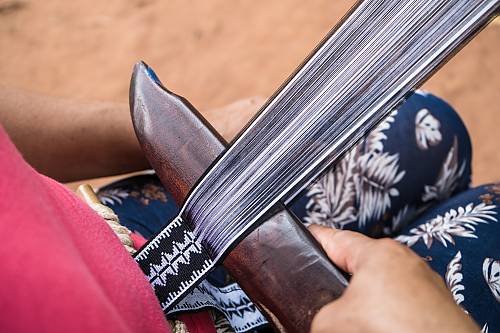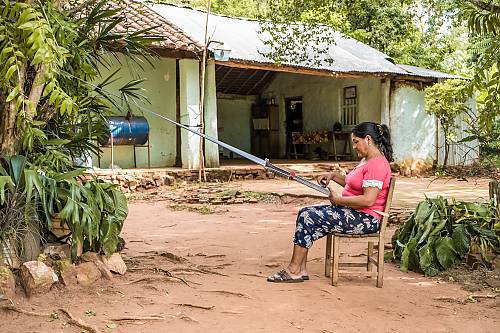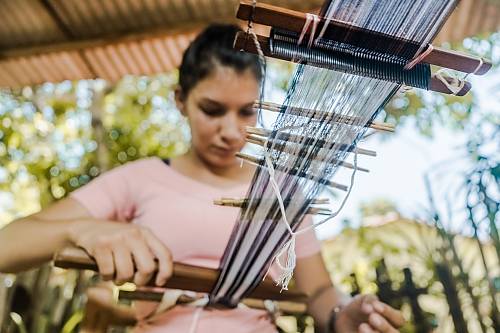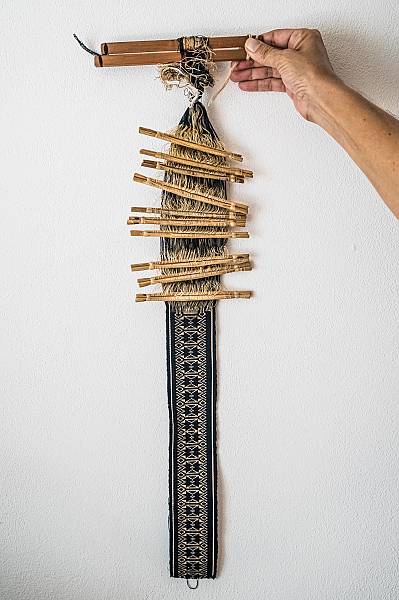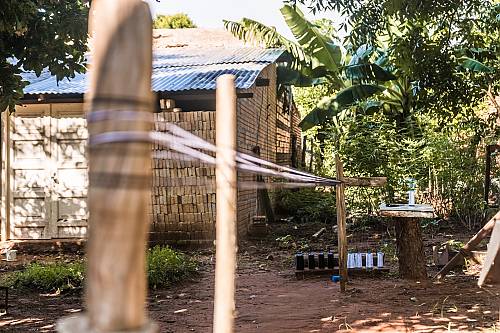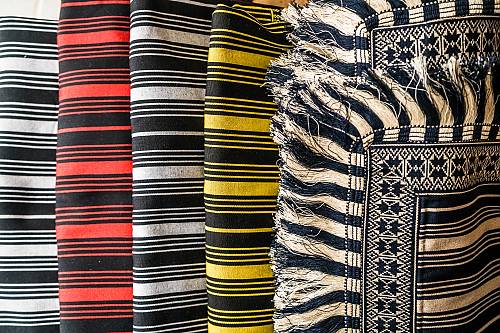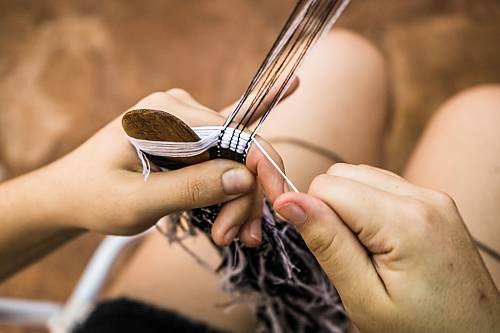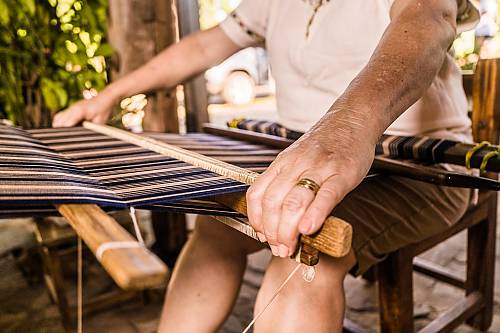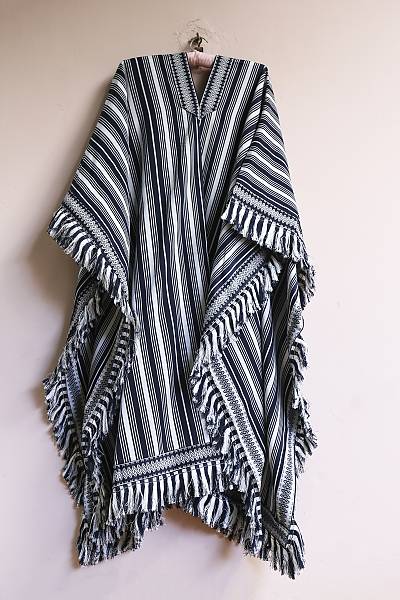Ancestral and traditional techniques for the elaboration of the 'Poncho Para'i de 60 Listas', from the city of Piribebuy, Republic of Paraguay
Inscribed in 2023 (18.COM) on the List of Intangible Cultural Heritage in Need of Urgent Safeguarding

The Poncho Para’í de 60 Listas de Piribebuy is a handmade garment from Paraguay consisting of three parts: the body, the fringes and the fajita or guard. Each part entails different crafting procedures which are carried out collaboratively by women weavers. To create the poncho, the practitioners weave three types of cotton threads, corresponding to the three parts of the garment. Each weaver makes a part of the poncho and specializes in one of the processes. While weavers have their own style and designs, they develop skills for teamwork in order to save time and resources, with the ultimate goal of maintaining the quality of the product. The materials associated with creating the poncho, including the thread, pallets and wooden chairs, are also made by hand. Historically, the ancestral techniques, which were first used by the native peoples, have been transmitted from weaver mothers to daughters orally, through observation and practice. Today, the Safeguarding School also helps weavers pass on their knowledge to future generations. The Poncho Para´í de 60 Listas is a symbol of unity and identity in the city of Piribebuy and is recognized nationally for its design and originality.
